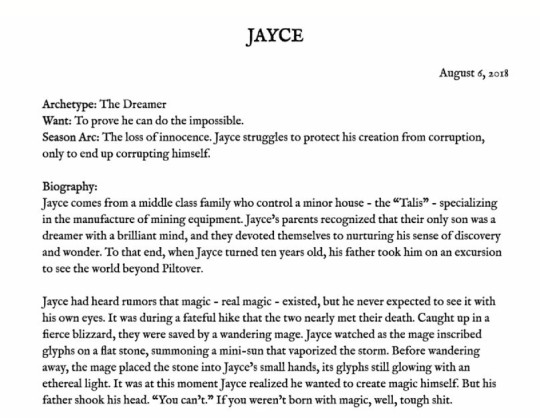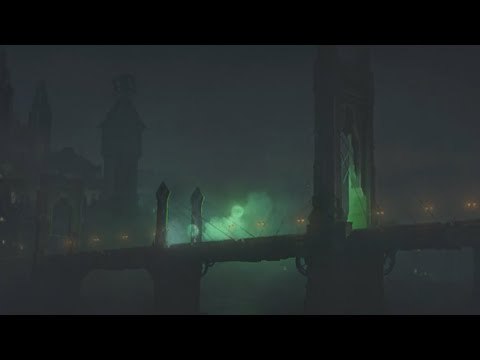#but my assumption is that the writers just drew on various bad aspects of our current capitalist landscape
Explore tagged Tumblr posts
Text
the fan is a good point---the mines likely have moved. there are probably still some, but obviously it's not as common as it was in Silco's day, because his whole pitch to the chembarons is also "let me remind you why we're not going back to the mining days," which also implies that the worst of that time is behind them, but it would have needed to exist at one point in order for Piltover to grow and get the label of city of progress and finance things like mines overseas (the question then is whether the mines are privately owned or owned by Piltover as an entity... the type of capitalism is vague but we clearly have something)
I've made a couple posts elsewhere talking about the idea that Zaunites commute to Piltover in large numbers, also based on the idea of the blockade (and because you can't convince me that Pilties do their own, say, sanitation work wholesale), and multiple posts calling what Jayce and Viktor do to the city's economy "hexgate neoliberalism," which doesn't map onto the setting perfectly but works a little too nicely lol. the short of it would is that the rise of neoliberalism in the western world typically also meant the decline of industry-centered economies. the factories get offshored, the economy moves more towards trade and service, and the city becomes a "financial center." they had those before but they had more factories and stuff
hexgates seems to have had a similar effect, making Piltover a "global shipping lane," as Shoola puts it, and clearly most of the city's wealthiest people require the hexgates to do business (the Mel and Jayce scene at the theater). they could still be involved in mining/industry, but that's happening less, probably
AND the other clue is the way that neoliberalism affects something that is really important to Marx's analysis of capitalism, the surplus army of labor. these are like unemployed people who want to be employed and are kept out of the labor market so capitalists can keep control over their workforce, so there's always a place to fall down to, and so the surplus army of labor can be called on for seasonal work, etc. but you don't want this group to be too big. Marx claims that the group being too big is a major driver of English and Irish immigrants to the US in the 1800s. and lowkey implies it's the reason, other than racism and stealing land, for the potato famine. anyway, under neoliberalism, the surplus army of labor starts getting kinda big and winds up more and more precarious. so we see now, like 50 years into neoliberalism, the rise of gig work, terrible job stability everywhere, etc, and the global advent of neoliberalism also coincides historically with changes in the global drug trade. I read an article about this during my masters lol. in the US, Michelle Alexander's famous book The New Jim Crow suggests that this shift led to the war on drugs, that as industrialism fell, drug use rose, and the surplus army of labor was shuffled off to prison more and more
it's easy to imagine how increased worker precarity and generally worsening conditions for the poor would be kinda convenient for a guy wanting to sell a certain purple substance and in need to a network to get it out there. and that relying less on industry and mining would make it easier for the wealthy to ignore it
There is a theory that the way children play serves as a means to simulate and prepare them for the tasks they'll take on as adults. So for all the narrative weight both Jinx and the story give the boxing machine at the arcade it would never have prepared her or the kids to take on Piltover.

What are the two things that Piltovans excel at over their Zaunite counterparts to keep the hierarchy? Weapons and technological development.

When you look at the way Piltovans invest in their children, they don't prioritize hand to hand/melee combat training. Piltovans focus on giving their children experiences in handling firearms, a pursuit that is both leisure sport for the wealthy and a key offense against dissenting Zaunites.


And from the show notes even Jayce, whose family occupies the upper middle class, was sent on educational excursions across Runeterra to explore the world and learn what it had to offer. Without Jayce's education abroad he would never have been inspired to pursue the concept hextech.
It's no wonder that the two figures that are set to be Piltover's biggest threats from Zaun are Jinx and Viktor, becasue they engaged in the same kinds of games and activities as their Piltovan counterparts.


Jinx didn't have an entire forest to preserved to help her practice her sharpshooting like the high houses of Piltover, but she did excel in the few games at The Rift (the arcade) that built on her talents. She's the only Zaunite thus far who's long distance offensive is a strong counter to Piltover's forces.


Viktor couldn't travel the world like Jayce did, but for better or worse he managed to stumble into an opportunity to get real opportunity in research not offered to his peers through Singed. It was through that experience that Viktor knew to turn to Singed when he was at the end of his rope, and the consequences of that will be fully realized in season 2.

Ironically, the kind of skill the boxing game champions is only good for keeping other Zaunites in line. Vander's days of fighting Piltover were way behind him when we first met him, and Vi spends season 1 primarily fighting other Zaunites. It's no surprise the Zaunites who embody the old ideal of strength in Zaun that the game portrays, Vi and Vander, are largely at the mercy of Piltover and end up collaborating with them to avoid further harm.
Zaun's future as an independent city-state couldn't happen if they stuck to their old ideals. The people who stand a chance against Piltover are the ones that not only succeed but excel at playing Piltover's games against them.
#like i said it's not a perfect analogy at all#but my assumption is that the writers just drew on various bad aspects of our current capitalist landscape#and it just so happens that the ones they chose point to hexgate neoliberalism#i'm never getting over the mining colonies though that is just a bonkers thing to drop in casual conversation#arcane#arcane meta#neoliberalism irl is about two main things#growing worker power in the imperial core and there being less empire elsewhere as large swaths of the world became independent countries#these things happened at the same time and rich people were like hmmmmmm what if we just still had all the power#david harvey's work is like the most-commonly references on it#but there are a lot of other scholars (my fave is arun kundnani) who emphasize the colonial aspect#this is getting too long
770 notes
·
View notes